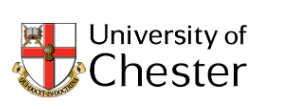Our MA in Creative Writing: Writing and Publishing Fiction is a stimulating and rewarding course designed to help you develop the craft of excellent writing, enable you to produce original fiction, and equip you with the knowledge to get it published.

Creative Writing: Writing and Publishing Fiction
CourseSummary
Our MA in Creative Writing: Writing and Publishing Fiction is a stimulating and rewarding course designed to help you develop the craft of excellent writing, enable you to produce original fiction, and equip you with the knowledge to get it published.
This distinctive course comprises four modules – Writing Short Fiction for Publication, Writing Novels for Publication, Getting Published, and The Writing Project – which are taught by a team of published authors, editors, and scholars.
Their publications include: flash fiction; novels; short-story anthologies and collections; articles and essays; interviews; student textbooks; and writers’ guides. Two of the teaching team edit Flash: The International Short-Short Story Magazine, which has published stories by students on the MA.
The Exton Park library is well stocked with creative writing textbooks and houses the Flash Fiction Special Collection, the world’s largest archive of flash-related books and magazines.
About the University
Get to know the University of Chester of today and learn about our long and fascinating history.
Our History
The college which would become the University of Chester was founded in 1839 by such pioneers as the 19th-century prime ministers William Gladstone and the Earl of Derby, and a future Archbishop of Canterbury.
The institution's original buildings were the first in the country to be purpose-built for the professional training of teachers. The first cohort of 10 male student teachers had been taught in temporary premises in Nicholas Street from February 1840, until increasing student numbers led to a move to further temporary accommodation in Bridge Street later that year.
The need for a permanent site led the Dean and Chapter of Chester Cathedral to donate land adjacent to Parkgate Road and the new facilities were opened in 1842 for the 50 student teachers and their school pupils.
Exton Park has subsequently been developed to accommodate the needs of students and the University still provides higher education in this location and at other sites in the city and beyond.
Education qualifications remain significant and are now a fraction of the 350 course combinations on offer. In the 20th Century, the institution steadily expanded its student numbers and the variety and nature of its courses, which range from Accounting and Finance to Zoology.
The University of Chester now has over 1,800 staff and some 14,000 students, drawn from the United Kingdom, Europe and further afield, particularly from the United States, India, China, Nigeria, Turkey, Uganda, Pakistan, Ghana, Bangladesh, Qatar, Indonesia, Vietnam, Japan, Sri Lanka and Malaysia.
As well as undergraduate and postgraduate degrees, a new range of foundation degrees and apprenticeship degrees combines conventional university study with learning at work.
MPhil and PhD qualifications are an established and growing area of activity, with the University gaining the powers to award its own research degrees in 2007. The emphasis is very much on research that has practical benefits both economically and culturally, and the University provides consultancy support across a variety of areas of expertise.
Recent projects have included helping to develop England’s first ‘carbon neutral’ village, discovering a vitamin compound which reduces the risk of heart disease and dementia, translating the Bible into British Sign Language, and research into understanding the psychological impact of cancer to improve wellbeing and quality of life for patients and their families.
Development of well-respected courses in Health and Social Care, Business and Management, Arts, Humanities and Social Sciences, Science and Engineering, Medicine and Life Sciences, and Education and Children’s Services has further extended the University’s work and connections with industry, commerce and the professions.
Many millions of pounds are continually invested in the accommodation and resources to enhance the student experience and there is a strong focus on making students feel supported and at home.
Recent developments include the addition of two large accommodation blocks (Grosvenor and Sumner Houses) and a significant expansion of the learning resource centre at Exton Park.
The Handbridge former Western Command Army HQ, in which Winston Churchill held wartime meetings with international politicians, is now the Queen’s Park and opened for the academic year 2015/16 as a base for the Faculty of Business and Management, educating the leaders of tomorrow.
Mission
Founded in Faith - Creating Community - Serving Society
Founded by the Church of England in 1839, we continue to be guided by Christian values and are justifiably proud of the open, inclusive and supportive environment that characterises the institution. Today, as the University of Chester, we welcome students and staff of all faiths or none.
We seek to provide all our students and staff with the education, skills, support and motivation to enable them to develop as confident world citizens and successfully to serve and improve the global communities within which they live and work.
This Mission, which has helped shape our development and diversification, actively continues to inform our future planning and enrichment as a University.
Vision
At the heart of the University’s vision is an unwavering commitment to ensuring an outstanding student learning experience, developing the expertise of staff, providing teaching excellence, and actively growing research and scholarship.
Through these actions, the University hopes to make a positive impact on the lives of students, staff, and the communities that it serves, enabling the institution to make a significant and growing contribution to the region, nationally and internationally.
In valuing and celebrating its long history and traditions, the University is committed to engendering a sense of pride and shared ownership in all that it does. It is dynamic and enterprising in its approach to developing new opportunities.
© 2025 coursetakers.com All Rights Reserved. Terms and Conditions of use | Privacy Policy